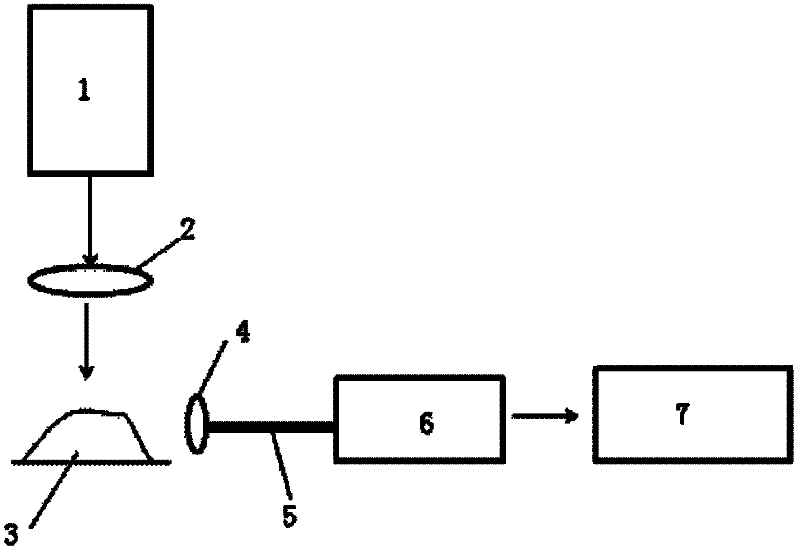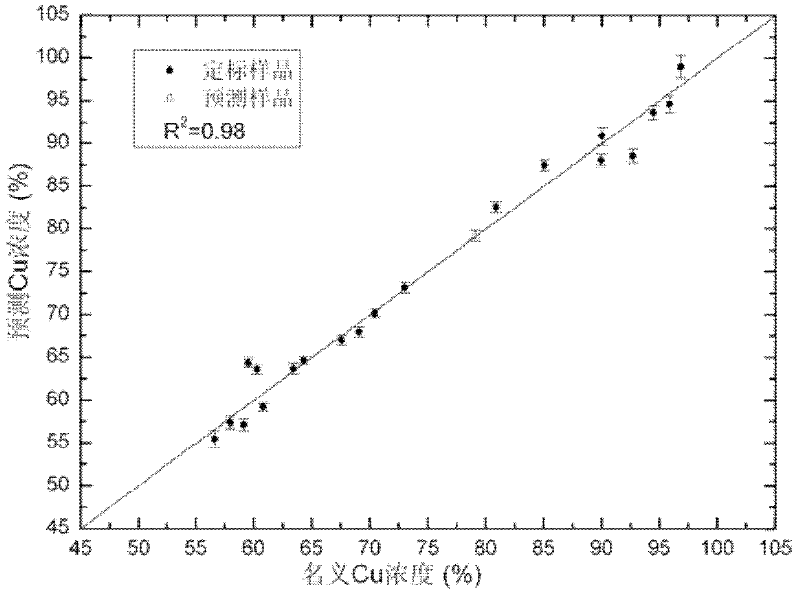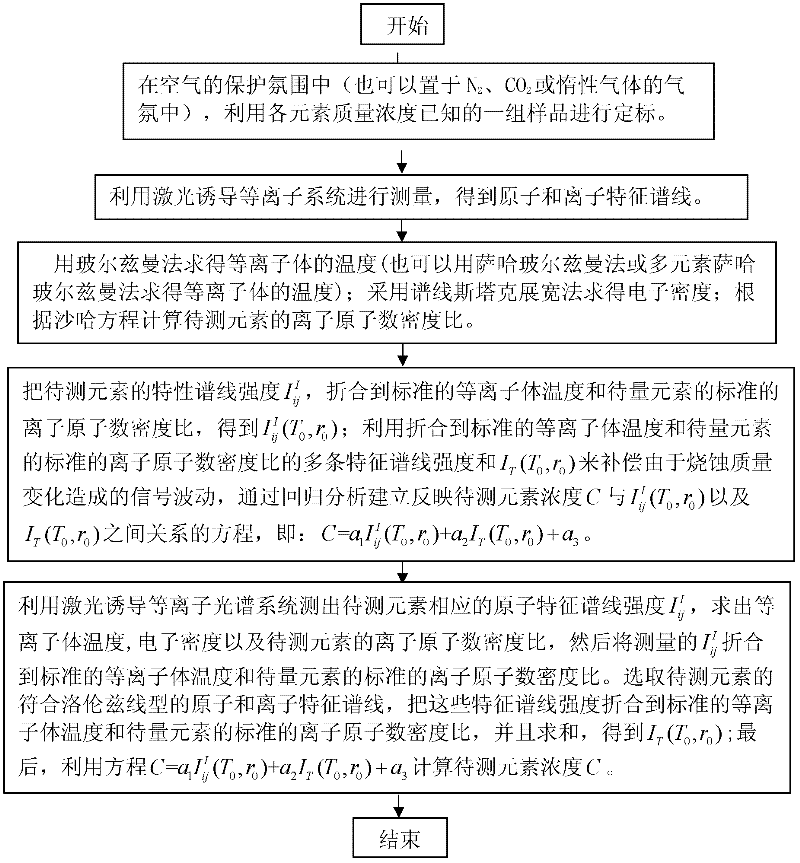Element measurement method based on laser-induced plasma emission spectral standardization
A plasma and laser-induced technology, applied in the direction of material excitation analysis, etc., can solve the problems of low precision, low measurement accuracy, and low repeatability
- Summary
- Abstract
- Description
- Claims
- Application Information
AI Technical Summary
Problems solved by technology
Method used
Image
Examples
Embodiment
[0067] 1) Take 20 brass alloys whose concentration of each element is known, as a group of calibration samples, numbered 1 to 20 respectively, the concentration of element copper in this group of samples is 73%, 60.28%, 59.14%, 56.62%, respectively, 59.55%, 69.08%, 80.9%, 85.06%, 90.02%, 95.9%, 96.86%, 94.46%, 92.7%, 89.97%, 70.44%, 67.59%, 64.32%, 63.42%, 60.81%, 57.98%. For each sample of 20 brass alloys, a laser-induced plasma measurement system is used to detect different positions on the sample surface in a protective gas atmosphere, and each position obtains a spectrum containing the characteristic lines of each element atom and ion, And obtain the atomic characteristic line intensity, ion characteristic line intensity, plasma temperature, electron density and the ratio of the ion number to the atomic number of the element to be measured respectively;
[0068] 2) The average value of the plasma temperature obtained for all measurements of 20 brass alloys is 9000K, and th...
PUM
 Login to View More
Login to View More Abstract
Description
Claims
Application Information
 Login to View More
Login to View More - R&D
- Intellectual Property
- Life Sciences
- Materials
- Tech Scout
- Unparalleled Data Quality
- Higher Quality Content
- 60% Fewer Hallucinations
Browse by: Latest US Patents, China's latest patents, Technical Efficacy Thesaurus, Application Domain, Technology Topic, Popular Technical Reports.
© 2025 PatSnap. All rights reserved.Legal|Privacy policy|Modern Slavery Act Transparency Statement|Sitemap|About US| Contact US: help@patsnap.com



